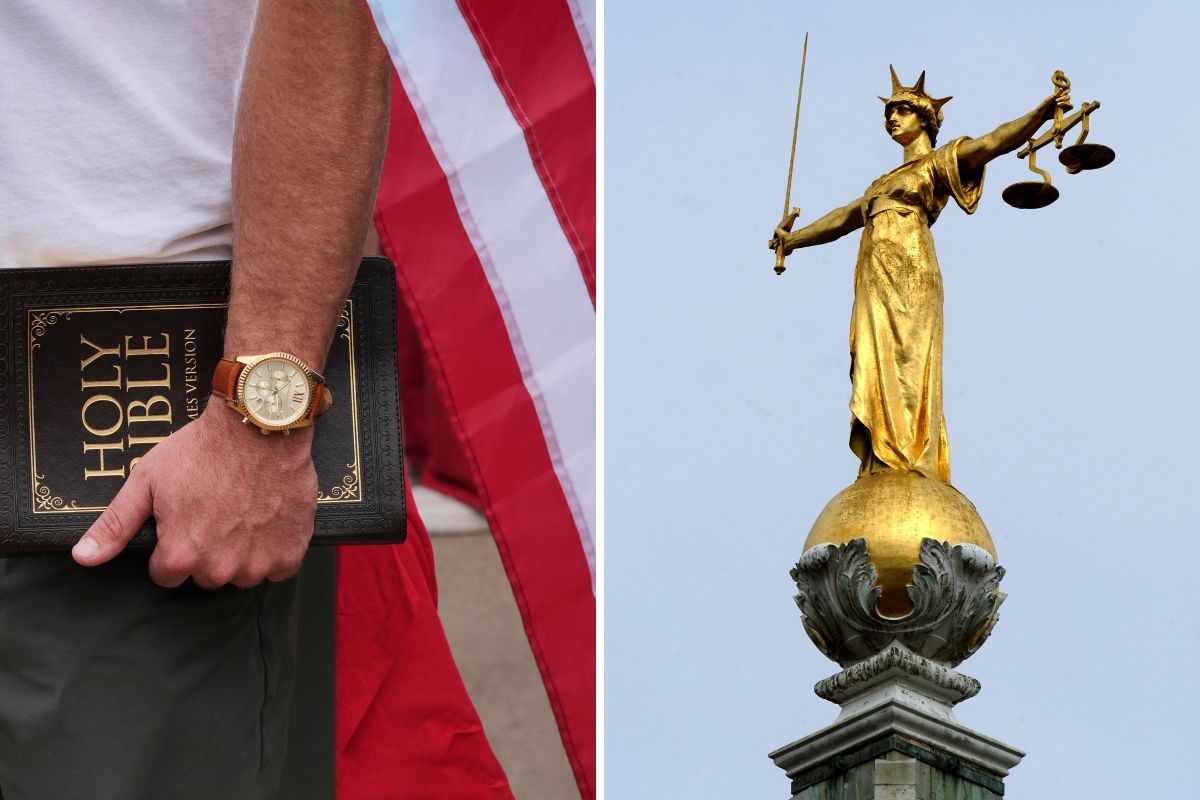Top Stories
Maine Supreme Court Reviews Mom’s Ban from Taking Daughter to Church

UPDATE: The Maine Supreme Judicial Court is currently deliberating a controversial custody case that restricts a mother from taking her 12-year-old daughter to church. The court is examining whether a lower court overstepped its authority when it barred Emily Bickford from exposing her daughter to Bible teachings, raising urgent questions about parental rights and religious freedom.
The case, Bickford v. Bradeen, has garnered widespread attention due to its implications for family law. On December 13, 2024, the Portland District Court issued a sweeping order that gave the child’s father, Matthew Bradeen, exclusive control over all religious decisions. This unprecedented ruling has sparked a fierce debate about judicial intervention in parental rights based on alleged psychological harm.
At the core of this dispute is the court’s determination that exposure to teachings from Calvary Chapel in Portland—where Bickford attends—could cause psychological distress to the child. The court cited specific church materials, including imagery of “fallen angels” and messages about “eternal suffering,” as potentially harmful. This decision raises alarming questions about how courts assess religious practices in custody disputes.
During oral arguments on November 13, 2025, Bickford’s attorney, Mathew Staver, challenged the constitutionality of the ruling, arguing it imposes a “total veto” over the mother’s religious engagement with her daughter. Staver emphasized that the lower court failed to provide evidence of abuse or neglect, stating, “There is no finding of abuse or neglect,” and described the mother’s previous observations of the child’s anxiety as insufficient grounds for such restrictions.
Bradeen’s attorney, Michelle King, defended the ruling, asserting that the trial judge acted within legal boundaries and aimed to protect the child’s emotional wellbeing. King argued that the court had identified “compelling state interests in avoiding substantial harm” to the child, thus justifying the restrictions imposed.
The justices of the Maine Supreme Court are now grappling with critical questions about the extent of judicial authority in religious matters. One justice asked whether the “best interest of the child” standard conflicts with religious-freedom principles, while another probed where to draw the line if specific religious practices are alleged to be harmful.
As the court deliberates, the implications of their eventual ruling could reshape how parental rights, religious freedom, and psychological harm claims are weighed in custody disputes. A decision could set a national precedent regarding the limits of judicial intervention in family religious practices.
This case not only highlights the complex interplay between parental rights and judicial authority but also touches on fundamental First Amendment issues. The Maine Supreme Judicial Court’s ruling is expected within the coming months, following private deliberations.
As the situation develops, this case remains a crucial focal point for discussions on religious freedom and parental authority in family law, with potential ramifications that could resonate across the nation.
-

 Science3 weeks ago
Science3 weeks agoOhio State Study Uncovers Brain Connectivity and Function Links
-

 Politics3 weeks ago
Politics3 weeks agoHamas Chief Stresses Disarmament Tied to Occupation’s End
-

 Entertainment3 weeks ago
Entertainment3 weeks agoMegan Thee Stallion Exposes Alleged Online Attack by Bots
-

 Science1 month ago
Science1 month agoResearchers Challenge 200-Year-Old Physics Principle with Atomic Engines
-

 Entertainment3 weeks ago
Entertainment3 weeks agoPaloma Elsesser Shines at LA Event with Iconic Slicked-Back Bun
-

 World3 weeks ago
World3 weeks agoFDA Unveils Plan to Cut Drug Prices and Boost Biosimilars
-

 Top Stories3 weeks ago
Top Stories3 weeks agoFederal Agents Detain Driver in Addison; Protests Erupt Immediately
-

 Business3 weeks ago
Business3 weeks agoMotley Fool Wealth Management Reduces Medtronic Holdings by 14.7%
-

 Entertainment3 weeks ago
Entertainment3 weeks agoBeloved Artist and Community Leader Gloria Rosencrants Passes Away
-

 Politics1 month ago
Politics1 month agoNHP Foundation Secures Land for 158 Affordable Apartments in Denver
-

 Top Stories3 weeks ago
Top Stories3 weeks agoOrioles Hire Craig Albernaz as New Manager Amid Rebuild
-

 Business3 weeks ago
Business3 weeks agoHome Depot Slashes Prices on Halloween Favorites Up to 75%









